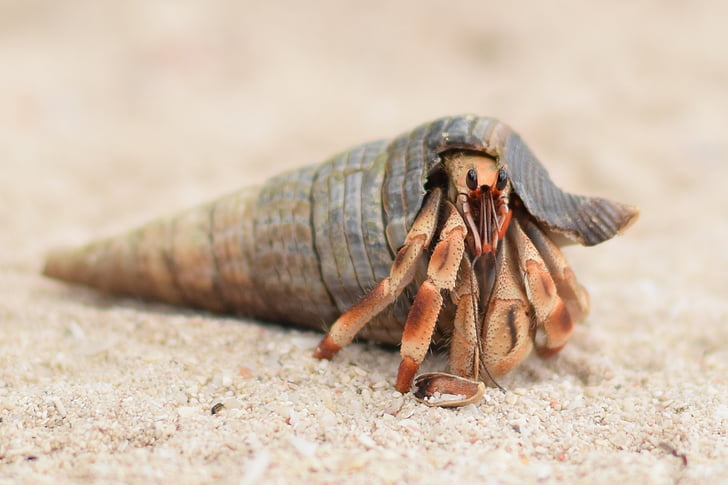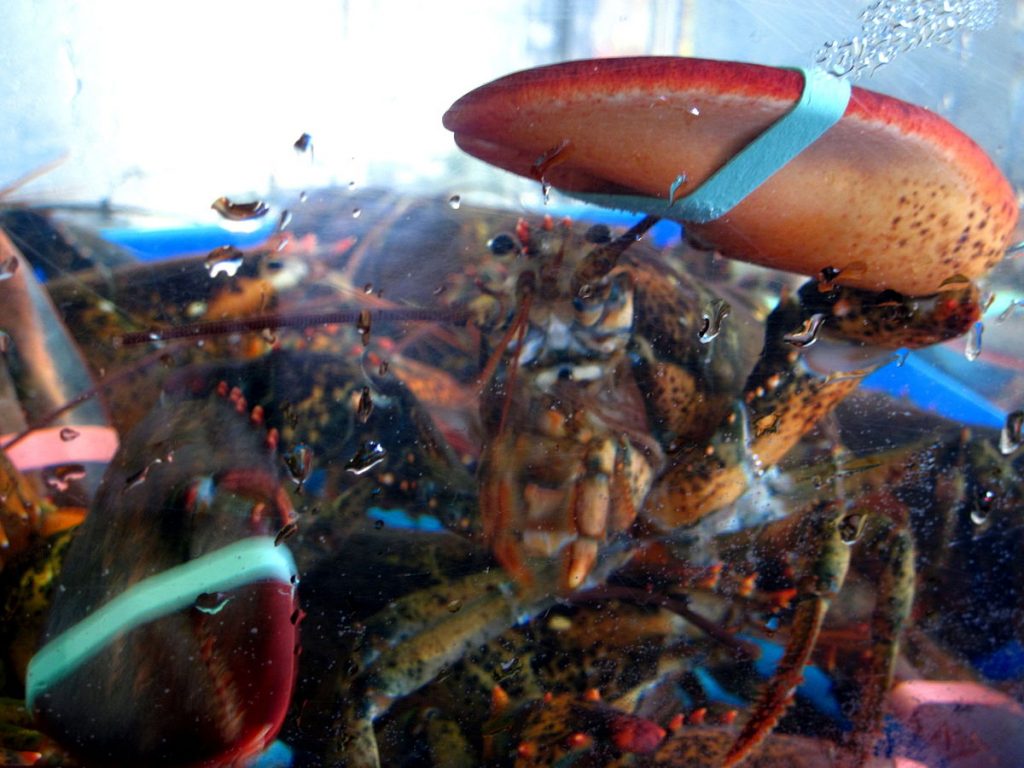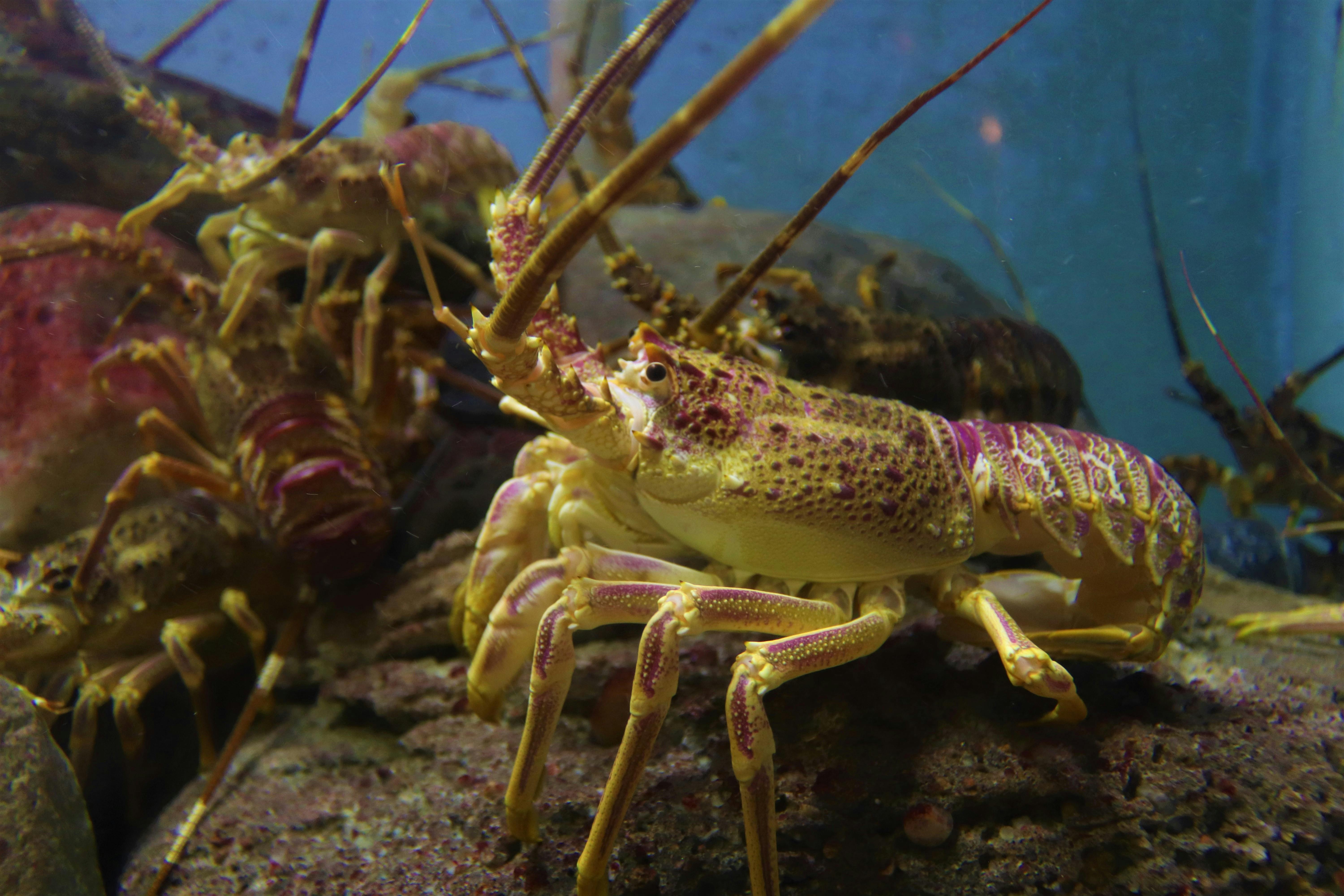Despite their name, hermit crabs sleep piled atop each other. They can die from stress if isolated. A lobster recognizes another lobster a week after spending just 20 minutes together. And a prawn will nurse her antennae after acid splashes on them, but anesthesia lessens this behavior—among the ample evidence of crustaceans’ sensitivity.

Analyzing the data, a recent UK government report said that these 10-legged crustaceans known as decapods—who include crabs, lobsters, crayfish, and prawns or shrimp—are sentient, and should be included in laws protecting animals.
Yet, over 250 billion decapods, largely shrimp, are factory farmed every year. Countless crabs, lobsters, and others are taken from the wild and sold live to untrained consumers, who may rip the animals apart or boil them alive without a second thought.

We all remember Sebastian’s song “Under the Sea” from The Little Mermaid, but real crabs have their own ways of captivating our hearts. Instead of watching over Ariel, male fiddler crabs defend their neighbors from intruders, while females fiercely protect their eggs. Fiddler crabs even have dominant males, akin to King Triton, who control prime territory. Though not technically musicians, the males wave their claws and make drumming sounds to attract mates, and some crabs even growl from their bellies when warning others to “back off!”
At Crab and Lobster Advocacy Worldwide (CLAW), we’re shining a light on the needless suffering of crustaceans. This includes their slaughter for food, exploitation in medical research, and the tourism and pet industries that capture hermit crabs from beaches and sell them like souvenirs. Those of us who’ve adopted them know that hermit crabs’ needs—from high heat and humidity, to the protection of a colony, and scurrying across endless tropical sands to stash shells—can’t be met in a box, cutting their health and life spans drastically short. Humane and nonviolent alternatives for every form of cruelty are growing, and CLAW supporters know that every crustacean is a beautiful, sentient animal who deserves our care.

Imagine you are a lobster, peacefully living at the bottom of the sea, perfectly adapted to your environment. You shouldn’t have to endure suffocation during capture, transport, or be boiled alive. Nor should shrimp and prawns suffer in overcrowded underwater factory farms, where females often have their eyestalks painfully removed to force reproduction.
Though the list of abuses they face is long, humans are becoming more aware of crustaceans’ fascinating lives. It’s time to remedy the pain we cause them and let them live in peace.
